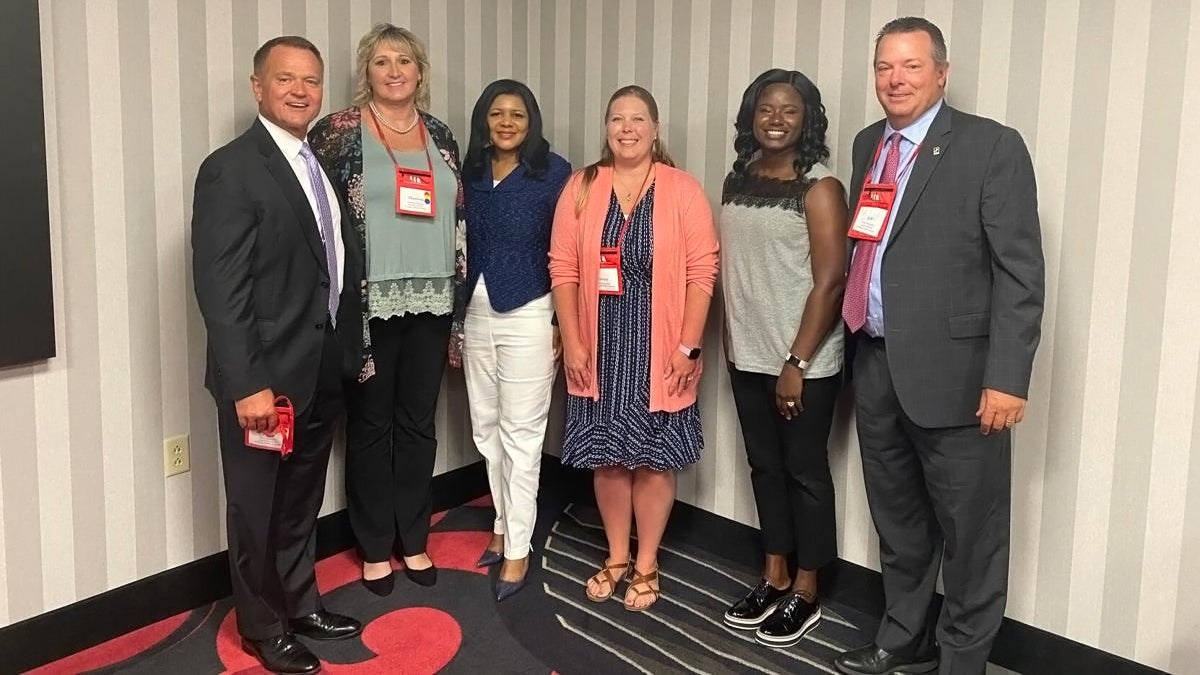Recent research has shown that strong principal leadership is key to improved student achievement and provided evidence of how building principal pipelines can work to better support school leaders working in large urban districts. But how can smaller, rural districts achieve this kind of success as well?
Three districts in central Nebraska–Grand Island Public Schools, Hastings Public Schools and Kearney Public Schools–are hoping to address this question by pooling their talent and resources to implement systemic improvements to the preparation, hiring, support and management of principals. Working together they have developed a model for an intensive internship and contextually-driven experience for teacher-leaders who are interested in becoming principals, called the Tri-City ASCEND Academy. Combined, Grand Island, Hastings and Kearney serve more than 19,000 students.
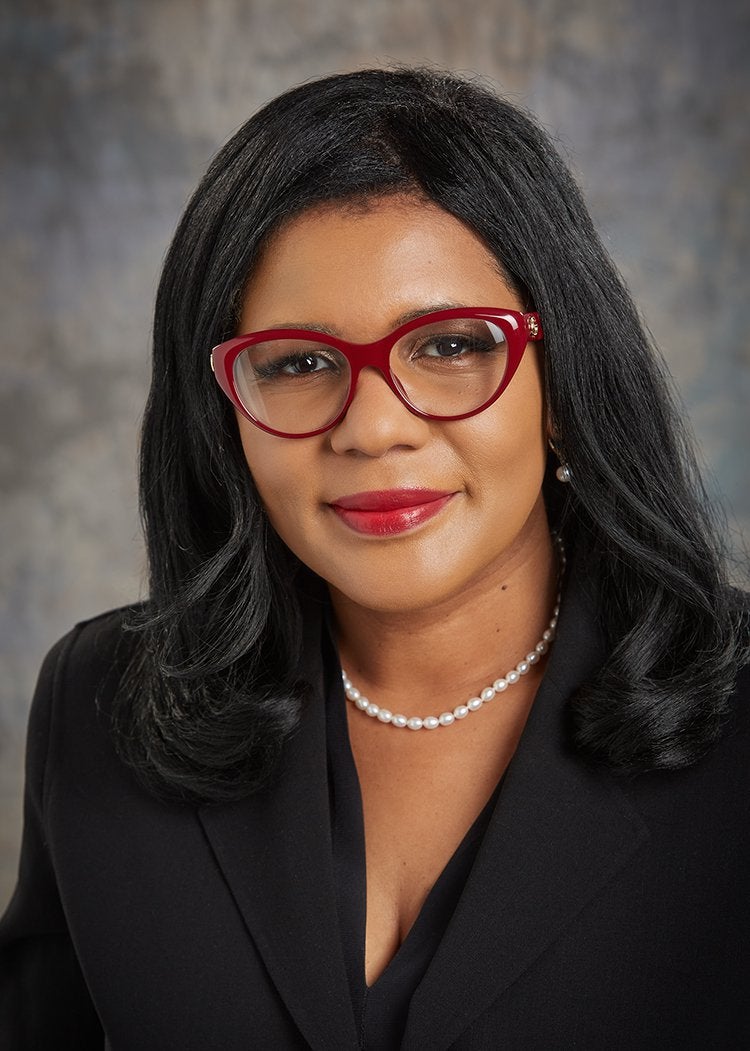
“We asked ourselves, how can we come together to ensure that we have high-quality educators ready to serve in the principal role where they feel confident?” said Tawana Grover, superintendent of Grand Island Public Schools.
The ASCEND Academy is a shared leadership program that offers teachers who are ready to take on administrative roles the opportunity to get hands-on experience. It is aligned with leading national research on the elements necessary to building and maintaining a pipeline of high-quality school leaders, including leader standards that guide all aspects of principal development and support; rigorous preservice preparation for aspiring principals; selective hiring and placement of these professionals; and on-the-job induction, evaluation and support.

We asked ourselves, how can we come together to ensure that we have high-quality educators ready to serve in the principal role where they feel confident
— Tawana Grover, superintendent of Grand Island Public Schools.
 “When we think about leadership standards—the competencies that our leaders need to have in order to influence people to move the continuous improvement process forward—building [the participants’] level of understanding of the knowledge and scope of that leadership capacity has to be in place in order to make that happen,” said Toni Palmer, chief of leadership and learning at Grand Island Public Schools. “We were really focused on equity-driven leadership and how we can build their level of knowledge and understanding of how to lead through that lens.”
“When we think about leadership standards—the competencies that our leaders need to have in order to influence people to move the continuous improvement process forward—building [the participants’] level of understanding of the knowledge and scope of that leadership capacity has to be in place in order to make that happen,” said Toni Palmer, chief of leadership and learning at Grand Island Public Schools. “We were really focused on equity-driven leadership and how we can build their level of knowledge and understanding of how to lead through that lens.”
The effort emerged in part from Nebraska's involvement in a Wallace-sponsored community of 11 states seeking to bolster the principalship. ASCEND participants were assigned and able to learn from their own home districts, and they were also given the opportunity to intern in the other two districts within one semester. After graduating, they can be hired in any of the Tri-City districts.

When you are a teacher, or in my case an academic support coach, you don't always see what goes into a principal's day. The ASCEND internship gave me that opportunity.
— Jessica Schroeder, academic support coach at Grand Island Public Schools
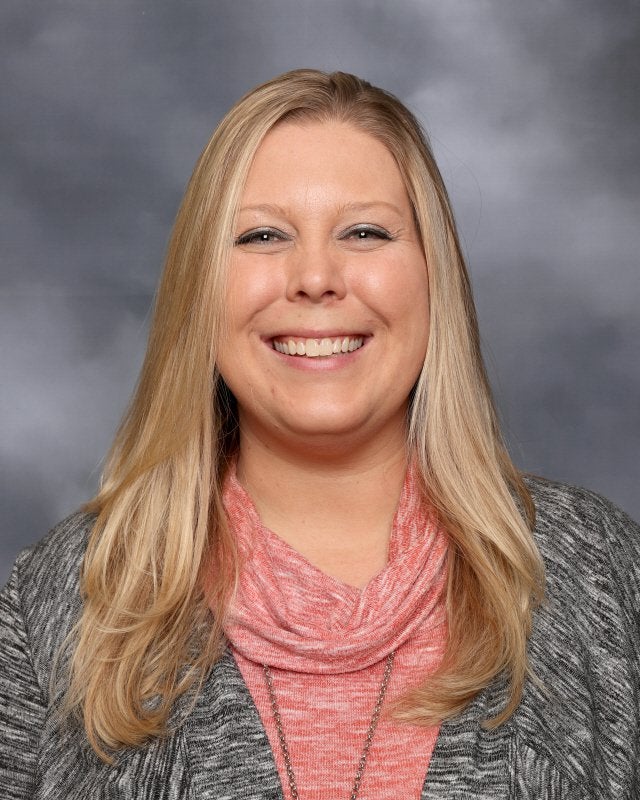 Jessica Schroeder, currently an academic support coach at Grand Island Public Schools, was one of the first three graduates of the program, which was launched in fall 2021. She had the opportunity to intern as a principal in Kearney and Hastings as well.
Jessica Schroeder, currently an academic support coach at Grand Island Public Schools, was one of the first three graduates of the program, which was launched in fall 2021. She had the opportunity to intern as a principal in Kearney and Hastings as well.
“Seeing all the hats a principal wears was so valuable,” Schroeder said. “When you are a teacher, or in my case an academic support coach, you don't always see what goes into a principal's day. The ASCEND internship gave me that opportunity.”
Leaders in all three of the districts hypothesized that program participants would benefit by interning in different spots, although they realized that the logistics of arranging for this variety of placements would be complex.
“We knew our overall goal and objectives, but bringing structure to it took an investment of thought and time,'' said Kent Edwards, superintendent of Kearney Public Schools. “Involving three separate school districts and three separate school boards brought forward the importance of communication and coordination between all of our districts.”
The districts’ boards approved the use of funds, and with a highly selective process, they chose their first three candidates.
“We hoped the candidates would get a feel for what it is like to be in an actual administrative position rather than just learning about administrative positions,” said Jeff Schneider, superintendent of Hastings Public Schools. “We also wanted them to learn the best practices of the district they were interning in and share these best practices with their home district.”
The three participants who were chosen kept weekly journals of their experiences to track progress and also met regularly with other educators from the districts they were interning with to work on professional development. “Each intern was exposed to three different leaders, three different structures, and three different practices and protocols to accomplish the mission of education,” said Edwards. “Each of the interns also were able to inventory and apply their own respective styles and ideas. Practically, a far better experience than any coursework could provide.”

We hoped the candidates would get a feel for what it is like to be in an actual administrative position rather than just learning about administrative positions,
— Jeff Schneider, superintendent of Hastings Public Schools
Schroeder, along with the other two participants, met with the district supervisors and learned about local principal performance standards, as well as how to process the problems of practice that one might experience as a first-year principal.
“There are many situations that you discuss in your college classes, but to experience them and have someone else to process through was very beneficial,” she said. “You were also able to see how the principal prioritized different situations that came up during the school day. Deciding what needed immediate attention versus something that could wait was a valuable lesson. I was also able to develop relationships with the principals I worked with. I feel because of this internship, I have two exceptional principals I can reach out to if I need advice or support.”

Just being in central Nebraska, there's going to be some things that are unique to us and how we have to go about solving those problems.
— Tawana Grover, superintendent of Grand Island Public Schools
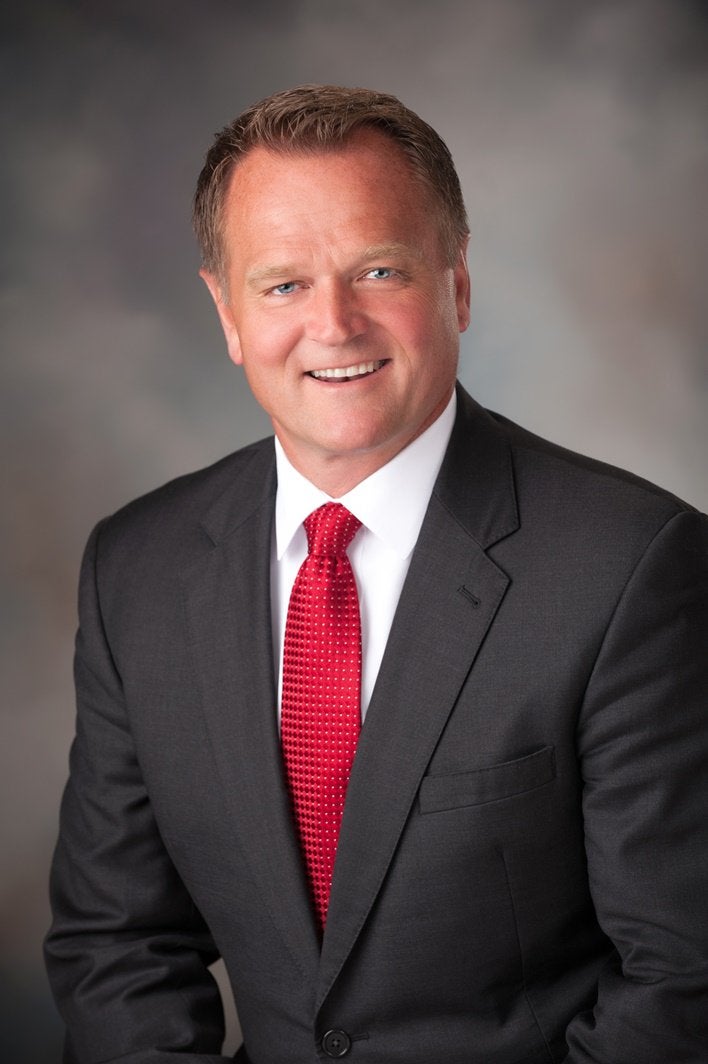 Representatives from all three districts said the communication and partnership among them became essential for the work to succeed. “The relationship between the superintendents included trust and respect,” said Grover. “We found ourselves relying on each other, asking each other ‘what are you doing, how are you going to handle this?’ Our bond became so strong at that point, and I think it allowed us to be very candid about what our needs are as an individual district, and how we're going to work on that together.”
Representatives from all three districts said the communication and partnership among them became essential for the work to succeed. “The relationship between the superintendents included trust and respect,” said Grover. “We found ourselves relying on each other, asking each other ‘what are you doing, how are you going to handle this?’ Our bond became so strong at that point, and I think it allowed us to be very candid about what our needs are as an individual district, and how we're going to work on that together.”
The three districts had something key in common: the circumstances of being relatively small and located in a rural community.
“Just being in central Nebraska, there's going to be some things that are unique to us and how we have to go about solving those problems,” Grover said. “The bigger challenge for us compared to some of the larger systems is that we’re not surrounded by all that support. We don’t want these students to think for one minute that they don’t deserve what a larger school district may have to offer. We may have to think differently about how we do it, but the goal of having that highly effective principal should be at the forefront, for us as leaders.”
Working together and sharing resources and ideas across all three districts was a way to overcome this challenge. And it could be possible for similar smaller, rural districts to replicate this partnership in their own areas.
“We came to it with the common understanding that every student deserves to have a highly effective principal leading their building–no matter their zip code, no matter where they are.” said Grover. “And I think what we've demonstrated is there is power in collaboration. We've demonstrated that we were not going to let location or size be an excuse for us. We’re going to pull our resources together to provide these rich experiences so that we can have high-quality principals available for all of our students.”
Grover’s advice for districts that want to take on similar work is to look for opportunities for collaboration, which proved beneficial to the Tri-City effort in a number of ways. Among other things, the three districts were able to split costs of the program, and they were able to have extra support, with multiple staff members from each district dedicated to the work.

We came to it with the common understanding that every student deserves to have a highly effective principal leading their building–no matter their zip code, no matter where they are.
— Tawana Grover, superintendent of Grand Island Public Schools
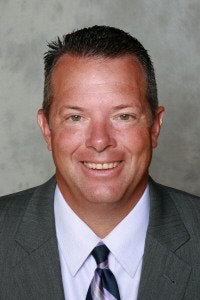
“While we liked the exposure to two different leaders, it was also very challenging for them to build relationships with two different sets of staff,” Schneider said. “So this year, they will just intern at one of the other districts as opposed to both.”
According to Edwards, the districts hoped to develop a stronger leader pipeline to meet the needs of the respective districts. The districts were able to ascertain if the participants ultimately would have the skills and traits of the kind of leadership they needed for their schools. And even if a match ends up not working, districts stand to gain from the endeavor. “Should they [the participants] elect not to pursue a formal leadership position, however, the district would still benefit, informally, from their decision to remain in their current position,” he said. “They would have a completely different perspective.”
Schroeder offered up some advice for future participants in the program, noting that her experience as one of its first three participants was both challenging and rewarding.
“The best advice I have is to ask questions,” she said. “I asked lots of questions to understand what the principal's thought process was for the decisions they made. My other piece of advice is to enjoy this experience. It was definitely an experience that challenged me. Becoming comfortable with the uncomfortable to learn and to grow through this experience truly helped me develop more confidence in myself as an instructional leader.”

When we're able to lift up leaders across the state, ultimately we're going to have a national impact.
— Tawana Grover, superintendent of Grand Island Public Schools.
As the Tri-City ASCEND Academy prepares for its second year, educators in smaller districts and rural areas elsewhere might take notice. “When we're able to lift up leaders across the state, ultimately we're going to have a national impact,” Grover said. “Kids all across the country can benefit from the seeds that are sown right here in the heartland.”
Lead photo above: Educators involved in the first year of the Tri-City ASCEND Academy included (from left to right): Kent Edwards, superintendent of Kearney Public Schools and Shannon Blaschko, selected as an intern from that district; Tawana Grover, superintendent of Grand Island Public Schools, and Jessica Schroeder, selected as a Grand Island intern; and Tamisha Osgood, an intern selected from Hastings Public schools and Superintendent Jeff Schneider.
